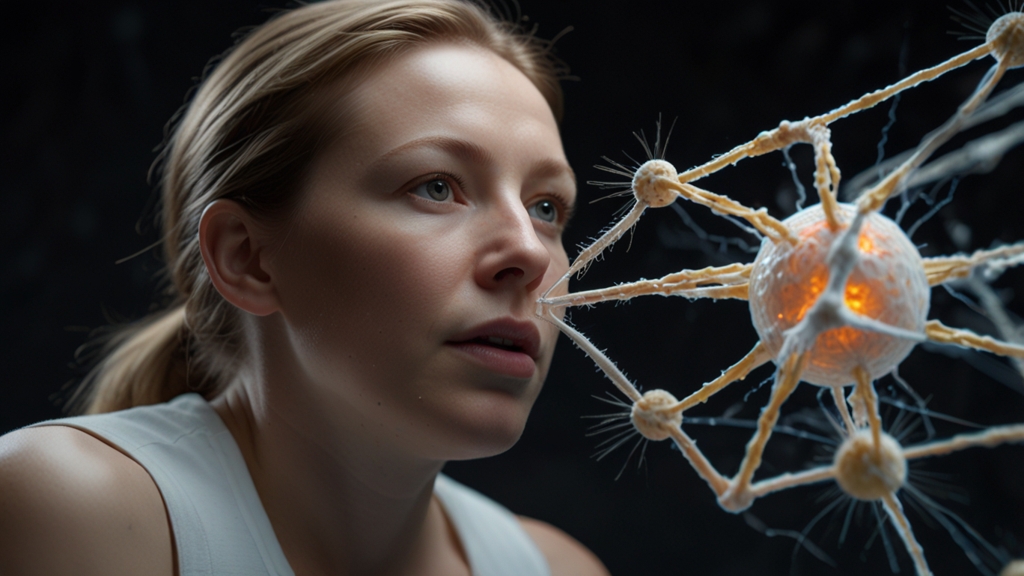The Genetic Clock: Can You Slow Down Aging?
The quest for eternal youth has been a dominant theme in human history, from the legendary Fountain of Youth to modern scientific endeavors. In recent years, the concept of the "genetic clock" has garnered considerable attention. This internal mechanism, largely governed by our DNA, appears to orchestrate the aging process. But, can we slow it down? Let's delve into the science of aging and explore if we can turn back the clock on our biological timeline.
Understanding the Genetic Clock
Aging is a complex biological phenomenon influenced by a multitude of factors, including genetics, lifestyle, and environmental exposures. The genetic clock refers to the genetic and molecular mechanisms that regulate the aging process. Central to this are telomeres, the protective caps at the ends of chromosomes that shorten with each cell division. This shortening is closely associated with aging and cellular senescence—the process by which cells lose the ability to divide and function.
Moreover, the role of epigenetics—modifications on DNA that affect gene expression without altering the DNA sequence—has been found to be significant in aging. As we age, epigenetic changes accumulate, leading to alterations in gene expression that can contribute to age-related diseases.
Scientific Insights into Slowing Down Aging
Several scientific studies have highlighted potential ways to slow down the aging process. Caloric restriction and certain dietary interventions have been shown to increase lifespan in various organisms, including yeast, worms, and rodents. The underlying mechanism appears to be the activation of pathways that enhance stress resistance and repair mechanisms.
"Lifespan extension by modification of the diet has been a revelation for scientists. Observations suggest that reduced caloric intake without malnutrition can delay the onset of age-related disorders." — Dr. Michael E. Rose, Evolutionary Biologist.
Another promising avenue is the use of senolytic drugs, which selectively target and eliminate senescent cells. These cells accumulate with age and contribute to the decline in tissue function and the development of age-related diseases. Early research in animal models has shown that senolytic drugs can improve healthspan and delay the onset of age-related pathology.
Genetic Interventions
Advancements in genetic engineering, particularly CRISPR-Cas9 technology, have opened up new possibilities for influencing the genetic clock. By precisely editing genes, scientists hope to address the root causes of aging at the molecular level. For example, gene therapies targeting the regulation of telomerase—the enzyme responsible for maintaining telomere length—may hold potential for extending cellular lifespan.
"The future of anti-aging therapies lies in our ability to manipulate the fundamental processes of aging at the genetic level. This could revolutionize how we approach age-related diseases and overall healthspan." — Dr. George Church, Geneticist.
Additionally, research is focusing on mitochondrial function and the role of reactive oxygen species (ROS) in aging. Mitochondria, the powerhouses of the cell, play a crucial role in energy production. Improving mitochondrial function and reducing oxidative stress are believed to be vital strategies for slowing down the aging process.
Lifestyle Interventions
While genetic and pharmaceutical interventions hold promise, lifestyle factors remain imperative. Regular physical exercise, a balanced diet rich in antioxidants, and stress management are all proven to have a positive impact on healthspan. These practices help mitigate the damage caused by free radicals, reduce inflammation, and support overall cellular health.
"Aging is not just determined by our genes. Our lifestyle choices significantly influence how well we age. Maintaining a healthy lifestyle can complement genetic and pharmaceutical interventions to promote longevity." — Dr. Elizabeth Blackburn, Nobel Laureate.
Conclusion
The genetic clock is a fascinating and intricate component of the aging process. While the science of slowing down aging is still in its infancy, the combination of genetic, pharmaceutical, and lifestyle interventions shows tremendous potential. Ongoing research and technological advancements will hopefully unlock new ways to extend both lifespan and healthspan, allowing us to age more gracefully and maintain our vitality well into our later years.
Although the quest for eternal youth may remain elusive, understanding and potentially slowing the genetic clock offers a path to healthier, more fulfilling lives. The fountain of youth may not be a single elixir, but a combination of scientific insights and conscious living.











